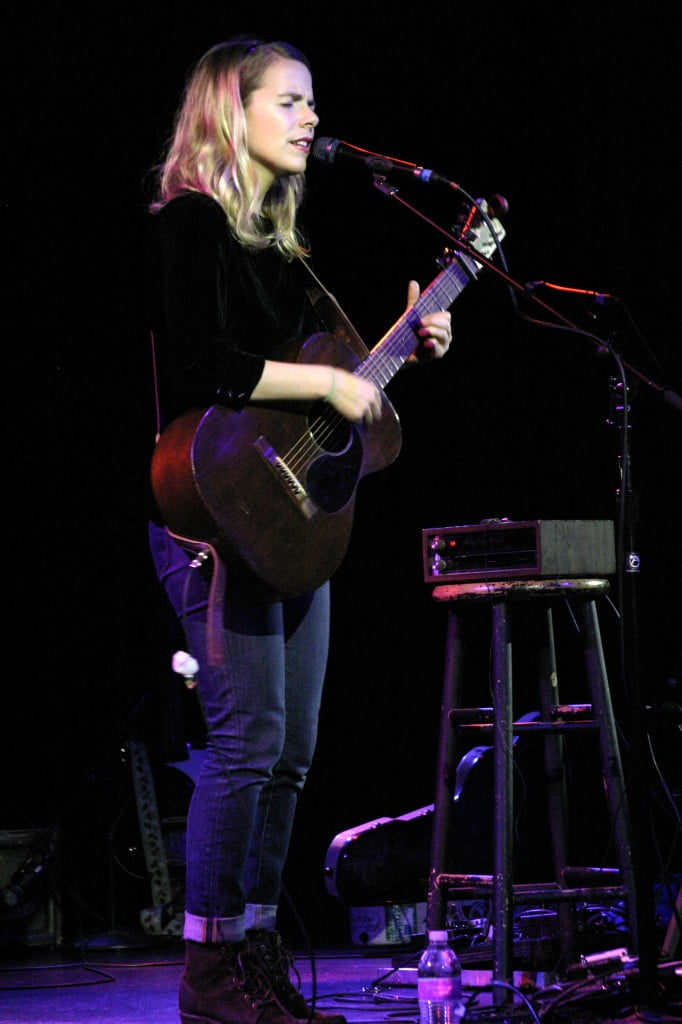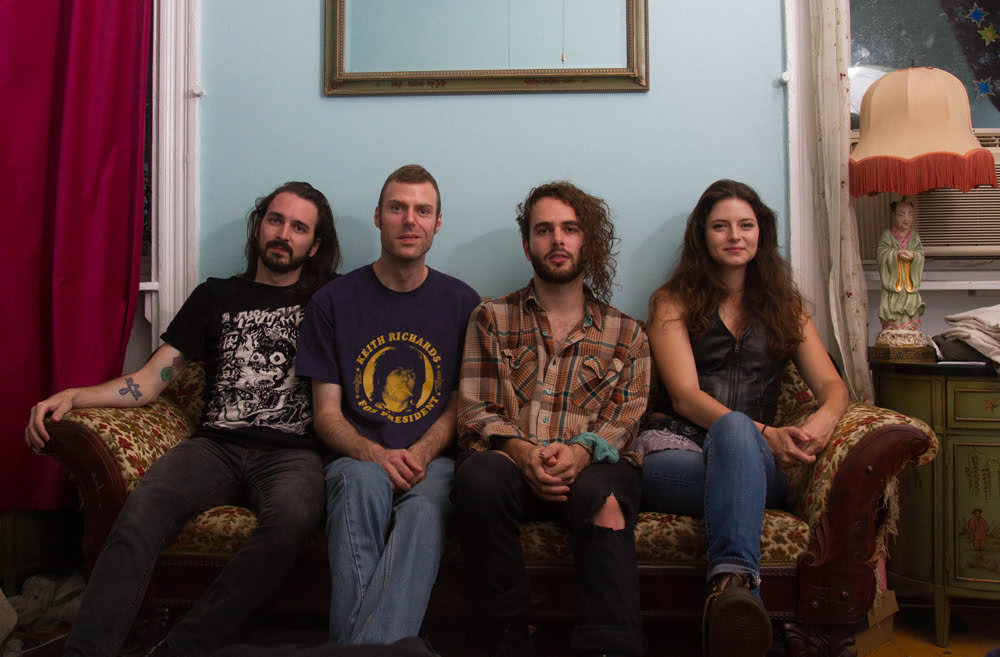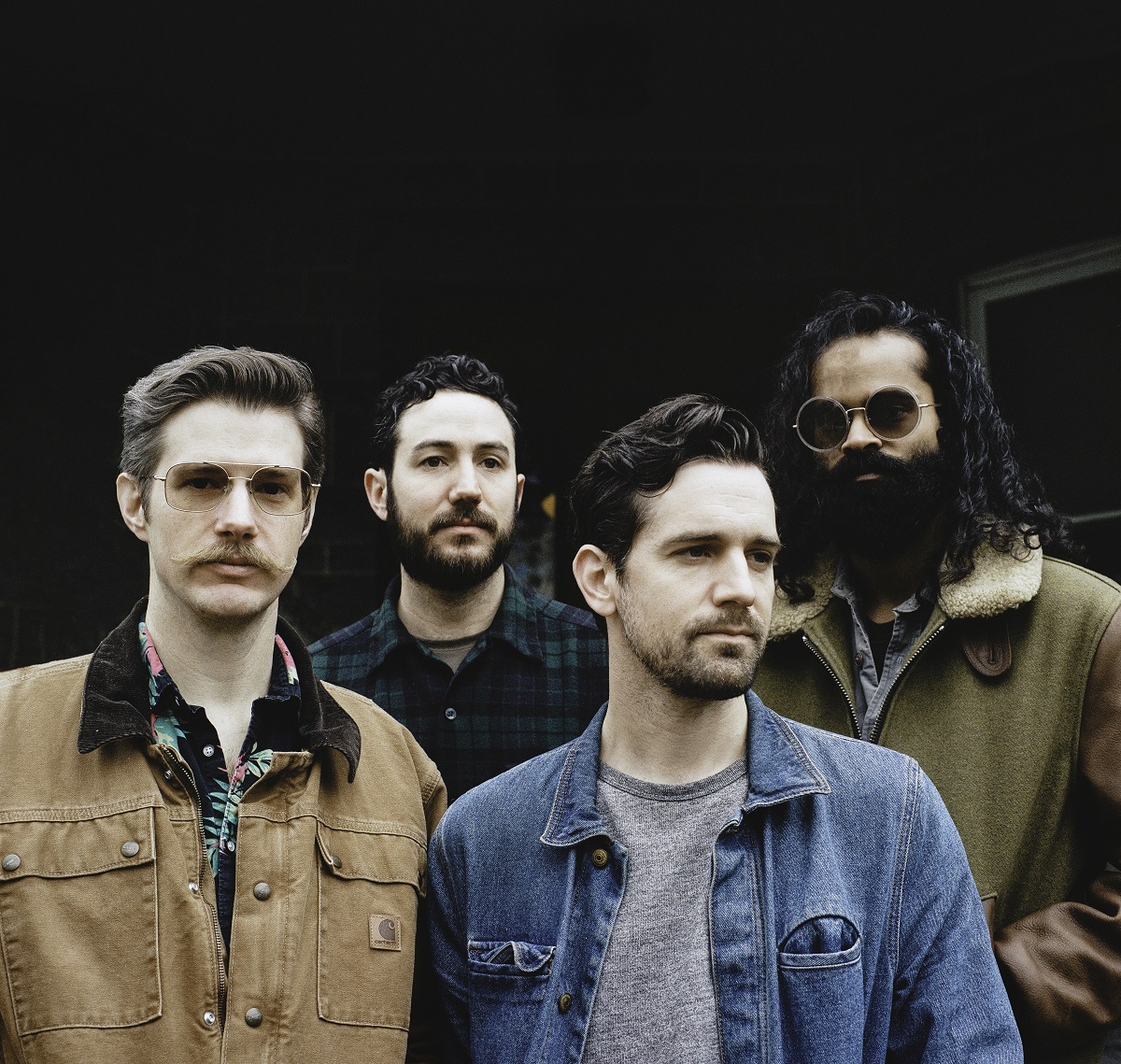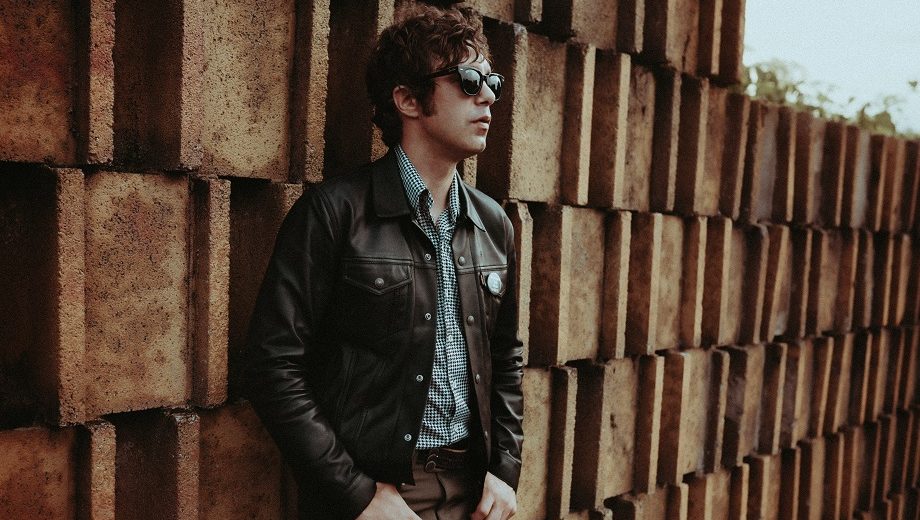Photo by Sierra Berry
The first word that pops through my head when talking with AOIFE O’DONOVAN is “genuine.” She’s genuinely happy to be here in Seattle, genuinely interested in talking about the music and traditions that have long inspired her, and when she takes the stage later that evening, opening up for Sara Watkins at Seattle’s beautiful Triple Door Theater, she’s genuinely engaged with the audience and with her own songs. This kind of presence is only possible in tandem with a deep sense of confidence, and during our interview I tried to touch at the roots of this confidence. Perhaps it comes from her upbringing in Celtic and American roots music, as her Irish-born father ran and still runs a popular Celtic radio show out of Boston’s WGBH, perhaps it came from the creatively engaged, top-flight talent of Boston itself, where she first nurtured her artistry, and perhaps it comes from the intense energy of a songwriter who’s newly stepped foot off the well-trod footpath of traditional music to embark on a journey to the heart of her own muse. Whatever the case, Aoife’s music these days is doing most of the talking for her, with high-profile guest spots on Yo-Yo Ma’s Goat Rodeo project and appearances on Noam Pikelny and Cathie Ryan’s solo records. Aoife’s fans have long awaited her next solo project, however, and we discussed her plans for the new album, which will be a big step in a new direction.
You grew up and started your musical career in Boston. I wonder what it is about Boston that makes it such a nice scene because you’ve been in Boston for so long, you’re so connected to the scene there and there are all these really amazing artists that are coming out of Boston. What is it about that scene?
AOIFE: I think it’s like every scene that starts with the right group of right-minded people being in the same place at the same time. When I was coming up in Boston, 10 or 12 years ago, my mentors were people like Matt Glaser who founded the band The Wayfaring Strangers, John McGann, an amazing mandolin player who tragically passed away this year but who was and continued to be a mentor for a lot of the young musicians coming through Boston like Sierra Hull, Mike Barnett, all those people. When I was going to school back in 2000, I ended up meeting my Crooked Still bandmates in Boston. Hanneke Cassel, a great Scottish fiddle player was there, Casey Driessen and Carrie Rodriguez had just left, both amazing Americana artists. The scene snowballed on itself; people come and go. But I don’t live there anymore.
Where do you live now?
AOIFE: Brooklyn, New York. I haven’t lived in Boston for almost 4 years.
New York has a really good scene as well, of course.
AOIFE: Yeah, totally. So, it’s just like any good scene; it’s about the people.
Looking through all the different bands you’ve either formed or been part of, all the artists you’ve toured with, you’re clearly known as a collaborator. I’m wondering… what is it like now to be moving towards going solo? It seems like you’re doing a lot more solo work at this point.
AOIFE: Yeah. I am, but I think that I will still continue to be a collaborator and therefore, to be known as a collaborator. In the last couple of years, I’ve done a lot of really fun collaborations that people have noticed, but I was always doing that and I think I’ll definitely continue to do that. As I move towards doing a solo thing, it’s more the chance for me to get out there and play my own songs by myself. It’s been a really fun way to work on my guitar playing which has always definitely played second fiddle to my primary instrument which is my voice. That’s been fun– I’ve got a long way to go but I’m trying. To get to go out on the road and open for people has been amazing. My first stint was earlier this year, I opened for the Punch Brothers over about three and a half weeks and played an opening set solo and then jumped up on stage with them. I’ve collaborated with everybody in that band over the years in different formations. Those guys are like brothers to me. It’s really fun to be on the road with them and get to play music with them in an informal setting, in their set. And the same goes for this tour with Sara and Sean [Watkins] and Tyler [Chester]; it’s just such a blast to have Sara and Sean up on my set and then kind of jump on and off stage with them. That’s what our scene is all about.
I thought collaboration was in your nature but you think maybe it’s more in the scene than in your nature?
AOIFE: I think it’s in my nature, but I think it’s in everybody’s nature. I think that maybe I’m friends with a lot of people who love to collaborate. That’s their thing–the Watkins Family Hour is all about collaborations–and that’s what I love most about this musical family that I am a part of… how willing people are to lend their voice or their instrument to somebody else’s project even if it’s at a jam or at a show or on a record or for a tour. It’s like give and give. There’s no ego involved; it’s an egoless scene.
I wonder what you’d say your prime influences are. Obviously, you have a ton of musical influences from all over.
AOIFE: Well, as a singer, my prime influences are people like Paul Simon. People are always shocked when I say that but I feel like the way he sings, his relaxed approach to a melody, is something that I really admire. Another male singer of that ilk is Chet Baker, a great jazz singer that I listened to a lot of when I was in college. Joni Mitchell, of course, in every way. Karan Casey and Kate Rusby, 2 singers that I’ve been able to collaborate with as I’ve gotten older but who I absolutely idolized when I was younger… Those are some pretty big influences of mine. And then, people like Dirk Powell and Tim O’Brien and as I got more into Americana music, and my peers continue to influence me in every way.
It seemed you started out with a lot of Irish influences. You went to Ireland in the summers and you have family over there, you listened to a lot of Irish music and you also do a lot of Americana and American roots music. It’s not too common to bring the Irish and American roots music together. How have you been able to do this?
AOIFE: It’s actually extremely common to bring the two of them together, because they’re basically the same thing if you go back far enough. American roots music comes directly from Irish traditional music. So, to grow up listening to Irish music and to discover the Americanization of Irish music, which is essentially Old-Time and Bluegrass, through the folk process, through the mountains, whatever, I think it’s a natural thing. There’s a lot of great stuff happening now with people like Bruce Molsky and Jerry Douglas being involved with the Trans-Atlantic sessions… and I think there’s a lot of tunes that are being passed around that may be an Old-Time tune, but originally was a Celtic tune, and now a Celtic band will play it… I try to do a similar thing. I feel very American, I am very American but my dad is from Ireland and I did grow up singing a ton of Irish songs…
Was that coming from your dad’s end of things? Where you heard about Karan Casey and Kate Rusby?
AOIFE: Yeah, I just grew up in that world. I grew up around a ton of folk music; you hear about all music through your parents when you’re young.
Was there a strong Irish scene in Boston growing up? Obviously there is but were you part of that scene?
AOIFE: My parents had tons of parties and we were always having Irish musicians in town but not really so much involved when I was growing up in that music scene, although I did do Irish step dancing.
With the wigs…
AOIFE: It was before wigs. Nobody wore wigs when I was a kid!
The sock glue as well? Gluing the socks so they don’t fall down. The world of Irish step dancing music have changed since you were a kid…
AOIFE: [laughing] How do you know so much about this?
It just blew my mind that people would glue their socks to their legs. I retained that nugget of information. I don’t understand why someone would do that. Moving on, I like how your singing has been described as ethereal. What do you think that means? Have you noticed that?
AOIFE: Yeah. I think maybe when people hear me they want to close their eyes and feel like they’re being carried away.
Like a forest meadow…
AOIFE: [laughing] I’m into that, I’m into that.
Do you think it’s the Irish side? I think maybe it’s the Irish side of your music. Irish singing is ethereal.
AOIFE: I don’t think that my singing sounds very Irish. I feel like it’s a little more grounded. I’m going for an earthy sound but also an ethereal sound, the juxtaposition of clouds and earth.
I like that. That’s a good answer. Let’s talk about your new album! I saw a Tumblr pic of you at Flora Records in Portland. Does that mean that Tucker Martine (Abigail Washburn, The Decemberists, Laura Veirs) produced it?
AOIFE: Yeah! Tucker Martine produced my new album. It’s official. We can announce it. It’s going to come out on Yep Roc Records. It’s untitled right now but it’s a Tucker Martine produced, 10 track wonder. I’m so excited about it! I was up there in October in Portland for 3 weeks and it was an incredible experience.
What was it like working with Tucker?
AOIFE: Amazing. He’s the best!
Were you familiar with him before getting on-board?
AOIFE: Of course. I’ve been a huge fan of his since 2003 when I heard the Sarah Siskind record that he produced, which is out of print now, but is a beautiful record. I was kind of obsessed with it. Through that I followed Tucker and became a fan of Laura Viers, his wife and frequent collaborator. Abby Washburn’s latest album was produced by him; plus the new album from my great friends Lau who worked with Crooked Still in the past.
I love Lau! What was it like working with Tucker? He obviously understands folk music but he also brings a lot of electronic and indie influences… He brings different ideas.
AOIFE: He’s a real musician. It’s really fun to be in the studio with somebody who listens with musician’s ears and has a great respect for who he’s working with… He just treats everybody with such respect. He’s so kind and so respectful and just really wants to hear people’s ideas and has a way of giving his own ideas, which are always amazing, in this really non-condescending way which really made the record unfold in a beautiful way.
Can you say who was on the album with you?
AOIFE: Yeah. I played a bunch of the tunes with my band from New York: Jake Silver who was in The Mammals for many years, Robin MacMillan, great drummer, Brooklyn’s best kept guitar secret, Ryan Scott, who’s the best guitar player I know. That was the core. And Charlie Rose, my pal on pedal steel, a great Boston musician. A whole host of guest singers: Sam Amidon sings on a track, Ruth Moody ended up being in Portland, came and sang from The Wailin’ Jennys, Caleb Klauder, Reeb Willms…
Caleb and Reeb, I work with them a lot. They’re so awesome.
AOIFE: They’re so amazing. The last track on the record is kind of a gang vocal and John MacDonald sings on it, my friend from King Wilkie from back in the day, Annalisa Tornfelt of Black Prarie plays fiddle and sings. My favorite guest of the whole session was my sister, Nuala, who flew out from McGill where she’s a student, and she sang harmony on 6 tracks. She’s a really incredible singer.
So, on the new record, is it mostly original songs?
AOIFE: All originals! 10 originals.
So when did you start moving to be a songwriter?
AOIFE: I was always a songwriter! From when I was in middle school. I wrote songs all through college, but in Crooked Still that wasn’t our thing. I never wanted to be the band that started off as a traditional band but then moved into being a band where it was all my songs.
Did you have band discussions about that?
AOIFE: Yeah, kind of…
Band fights?
AOIFE: Not fights at all. I never wanted to use that as a vehicle for my own music because it wasn’t really about that. There were a couple of tunes that we did over the years that I wrote that worked really well in Crooked Still… But we were a traditional band; we wanted to play folk songs; that’s what we wanted to do.
So what does it feel like now to have done all these collaborations and gone with what you were doing and the vibe and the feeling of the band and the spirit of the band but now you’ve got your album of all original songs.
AOIFE: It feels great. I made a list of goals when I was 18 and one of them was: make a solo album before you turn 30 and I just snuck it in with 3 weeks to spare! It’s going to come out after I turn 30 but I did make it. [laughing] It feels great. It feels like these songs have been alive. Maybe half of the tunes are from an earlier batch and then a bunch of them are new but it just feels great to be able to tell my own stories and sing them and I hope that people enjoy it. I loved making that record and I’m looking forward to playing my songs for people.






